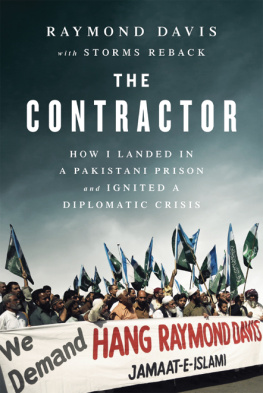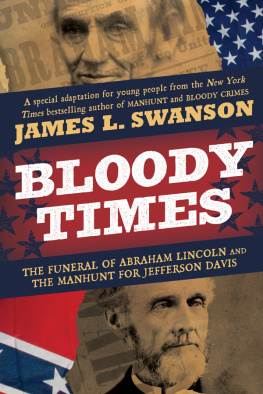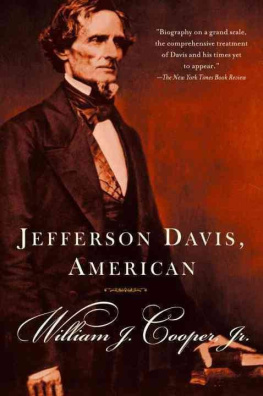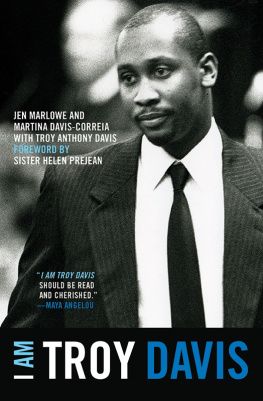

Copyright 2017 by Raymond Davis
All rights reserved. No part of this book may be used or reproduced in any manner whatsoever without written permission except in the case of brief quotations embodied in critical articles or reviews.

BenBella Books, Inc.
10440 N. Central Expressway, Suite 800
Dallas, TX 75231
www.benbellabooks.com
Send feedback to
First E-Book Edition: June 2017
Library of Congress Cataloging in Publication Control Number: 2016015154
eISBN 978-1-941631-85-0 (e-book)
Editing by Leah Wilson and Vy Tran
Copyediting by James Fraleigh
Proofreading by Lisa Story, Greg Teague, and Rachel Phares
Text design by Publishers Design and Production Services, Inc.
Text composition by PerfecType, Nashville, TN
Cover design by Pete Garceau
Jacket design by Sarah Avinger
Cover photo ILYAS J.DEAN/PAK IMAGES/Newscom
Printed by Lake Book Manufacturing
Distributed by Perseus Distribution
www.perseusdistribution.com
To place orders through Perseus Distribution:
Tel: (800) 343-4499
Fax: (800) 351-5073
E-mail:
Special discounts for bulk sales (minimum of 25 copies) are available. Please contact Aida Herrera at .
For my son. I hope you will grow up in a safer world than the one Ive known, thanks, in some measure, to the work I did overseas.
Contents
A LOT HAS BEEN WRITTEN about the time I spent in a Pakistani jail in 2011much of it, unfortunately, false. Im hoping to set the record straight. If I withhold anything, its only to ensure that I dont divulge any information that could compromise our national security or put any American service personnel or contractors in harms way. To that end, some names have been changed. This book represents my views and not those of the State Department or any one of the private military-contracting companies that have employed me. With only a few notable exceptions, the events described are based entirely on my memory. Because of the rigors of captivity and the absence of a watch or clock much of the time I was held, the timing of some events may be slightly off. A similar caveat applies to the dialogue. While Ive done my best to recall the most important conversations I had during that time, the phrasing is almost certainly inexact.
(January 27, 2011Day 1)
F UNNY, ISNT IT, how a bunch of very small and subtle decisions, when added together, can end up having such enormous consequences? I hadnt been awake more than an hour when I was presented with one such choice.
Theres only one SUV left outside, our team leader, a former Navy SEAL, informed me. You need it? Or can I take it into the office?
Our office was the US Consulate General in Lahore, Pakistan. As private military contractors, our job was to protect Americans working overseas, particularly those living in hostile environments. It might not have been the most glamorous occupationsome people called us glorified security guards, while others labeled us knuckle-draggersbut it was an essential one. Without us, many more Americans would have died while working abroad. Its as simple as that.
Thanks to the extremely rough roads that are so commonplace in South Asia, our vehicle of choice was an SUV. Let me share a quick story to give you an idea of just how tough and reliable they are. While working in Afghanistan, I once took a large SUV out on a long-range mission. The vehicles frame broke, and we had to tow it back in withyep, thats righta smaller SUV. That the SUVs at our disposal were armored with steel only made them that much more desirable.
But Ive always been a team player. No problem. Ill use the white sedan today.
If you believe in chaos theory, which credits small changes in initial conditions with creating large (and often divergent) fluctuations in certain systems, my decision to drive a soft-skinned rental car around the streets of Lahore instead of an armored SUV was like the veritable butterfly flapping its wings halfway around the world. It kicked off a chain of events that would later be used as a case study at the John F. Kennedy School of Government at Harvard University to show how the accumulation of a number of small, seemingly innocuous missteps can quickly lead to a crisis. The incident that took place in Lahore, and that will forever be linked with my name, was a textbook case. A clerical error here, a diplomatic snub there, and suddenly youve got a major diplomatic crisis on your hands.
And it all started with me, a lowly contractor, typically a bit player in the wartime theater, volunteering to use a vehicle that was no match for the many challenges it was about to face.
If only Id gotten up a little earlier that morning, maybe things would have turned out differently.
ID FLOWN INTO ISLAMABAD, Pakistans preplanned capital city, the week before, then down to Lahore the following day. This was my ninth trip to Pakistan in the last two years, half of which Id spent in Peshawar, a frontier town near the border shared with Afghanistan. The other half Id spent in Lahore, the capital of Punjab Province and the countrys second-largest city. Home to nearly 10 million people as well as numerous universities, markets, archaeological sites, historic monuments, mosques, restaurants, and stadiums, Lahore was a bustling and vibrant city with a rich history and culture. It was also home to a fair number of terrorists, putting it on the front lines of the War on Terror.
Despite the exotic locale, my job was generally mundane, and that was just the way I liked it. In that way, my teammates and I were not unlike sports referees: If no one ever noticed us, that meant we were doing a great job. It was only on those rare occasions when something went wrong that we were forced to make our presence known.
As security contractors, one of our main responsibilities was protecting people from themselves. Dont get me wrongmost of the people I was charged with protecting were highly intelligent and very good at their jobs, but they simply werent trained to recognize the possible dangers that could arise if they were to wander into the wrong place at the wrong time. They excelled in environments that were completely foreign to meoffice buildings in Washington, DC, for examplebut let them loose in a country where anti-American sentiment is strong and terrorist groups are prevalent and you have a potential disaster on your hands. I was there to make sure they didnt make any foolish choices, that they stayed safe and came home in one piece.
This task was made much harder when the people I was supposed to protect failed to heed my warnings. I was once put in charge of a group of US Agency for International Development (USAID) officials who were looking to build new houses and roads in a few small villages in rural Afghanistan. Before we set out, I warned everyone in the group that the country was heavily mined, and I implored them to be careful. I told them, You cant wander off. Stay next to us and do exactly what we do. But, of course, one of them just had to take a picture of something, and the next thing I knew she was standing in the middle of an active minefield.
Stop! I yelled. Do not take another step.
Huh? Why?
Did you not see the red rock? I pointed at the painted rock, which, to those who knew better and were paying attention, indicated the edge of the minefield.
Next page















